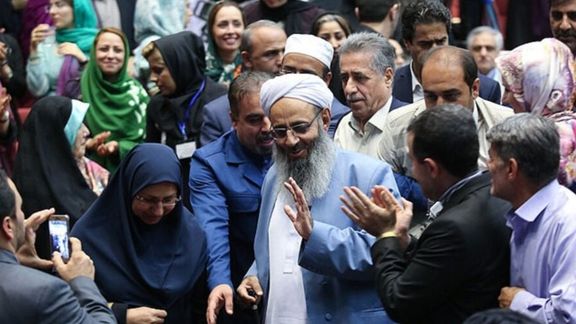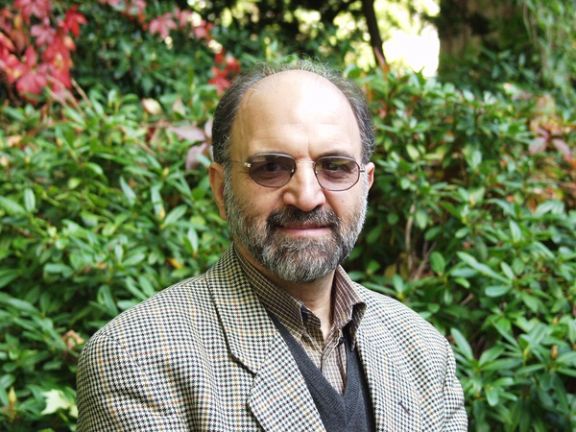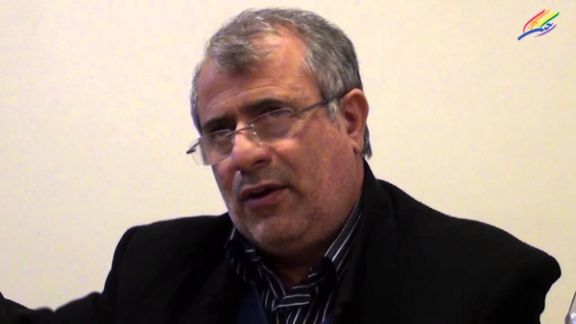Iran's ‘Religious Intellectuals’ Urge Support For Dissident Sunni Cleric

Iran’s religious intellectuals or modernists have expressed support for a top Sunni cleric who has come under pressure from the government for his fiery sermons.

Iran’s religious intellectuals or modernists have expressed support for a top Sunni cleric who has come under pressure from the government for his fiery sermons.
“We believe that given the absence of liberalism and courage among Shia clerics, [the Sunni] Mowlavi Abdolhamid must receive all-encompassing support from Iranians in Iran and abroad,” a statement released Saturday by fifteen prominent political, academic and media figures said.
Security forces during the week arrested several people close to Mowlavi Abdolhamid, the outspoken leader of the Sunnis in Sistan-Baluchestan, including his grandson. The regime has been pressuring him to put an end to criticism of the government in his very popular Friday sermons in Zahedan, the capital of the southeastern province.
Abdolhamid’s sermons which make headlines almost every Friday have been followed by anti-government protests since what has come to be known as the Bloody Friday of Zahedan.

On September 30, 2022, security forces opened fire on civilian anti-government protesters killing more than 93 protesters including children and onlookers in Zahedan after Friday prayers.
This week’s Friday prayers in Zahedan were for the first time since then led by Mowlavi Abdul Ghani Badri, the interim Friday imam of Zahedan. Abdolhamid who had delivered a sermon the previous day for the Muslim holiday of Eid al-Adha, asked worshippers to march silently instead of the usual protests and chanting.
The religious intellectuals praised Sunni clerics who, particularly in the predominantly Sunni provinces of Kordestan and Sistan-Baluchestan, who have turned into “symbols of resistance and endurance of the Mahsa Movement.”

Signatories of the statement underlined that in addition to democracy and social justice, establishment of a government in Iran in which religion and state are separate is necessary. The intellectuals included philosopher and theoretician Soroush Dabbagh (Abdolkarim Soroush), female Islamic scholar Sedigheh Vasmaghi, former cleric Hassan Yousefi Eshkevari, historian Hashem Aghajari, Muslim scholar Mohammad Javad Akbarin, and commentator and journalist Reza Alijani.
Speaking to Iran International TV, Turkey-based political science researcher Meysam Badamchi who is among the signatories of the statement said Abdolhamid is now speaking not only about the wishes and demands of Sunnis but also those of other Iranians when he criticizes the government.

The signatories – who come from a Shia background themselves -- wanted to defend the rights of Mowlavi Abdolhamid as a Sunni cleric and the right of the people of Iran to criticize the government at a time when the Shia clerical establishment has chosen to remain silent about violation of people’s rights, he said.
“Religious Intellectual” refers to a number of political groups and public figures who believe in separation of religion and state and respect freedom of choice. Unlike theoreticians of the Islamic Republic, they consider religion a personal matter rather than the source of laws that regulate politics, economy and society.
They do not believe in the rule of Islamic jurist (Velayat-e Faghih (Wilayat al-Faqih) or Supreme Leader) which gives a cleric such as Ali Khamenei extraordinary powers including the power to overrule all elected bodies and officials and hence, people’s choice.
As a system of governance, Velayat-e Faqih has underpinned the way the Iranian regime has operated since the country’s 1979 Islamic Revolution. At its most basic, the theory, advocated by some Shia thinkers, justifies the rule of the clergy over the state.
Religious intellectuals have usually joined forces with reformists to create alliances against conservatives and hardliners (often collectively referred to as Principlists) at the times of elections.
Religious intellectualism has a long history in Iran and the Islamic Republic. Philosophers and theologists such as Abdolkarim Soroush, Mohsen Kadivar, Mohammad Mojtahed-Shabestari and politicians such as Mehdi Bazargan, the first prime minister of the Islamic Republic, have defined the tenants of religious intellectualism over the past few decades.
The non-religious opposition generally looks at religious modernists with caution, given their desire to completely severe ties between politics and religion.